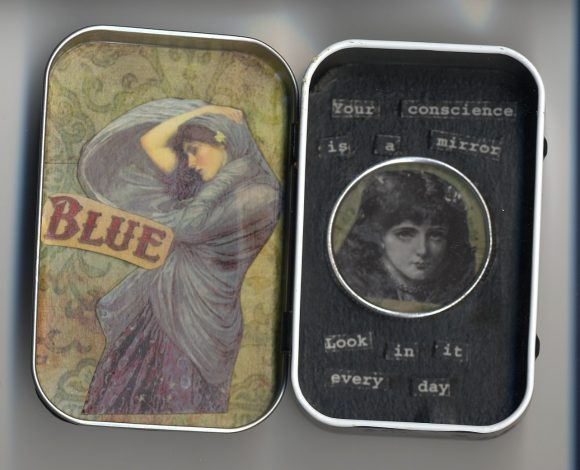Uncategorized
http://blacknerdproblems.com/flash-season-finale-recap-finish-line/
Season 3 / Episode 23 / The CW
And you say C-City!
Three seasons down and Flash is still carrying the live action DC torch, for all the world to see. And you can say I told you so exactly what would happen in the finale! Hate to throw it in ya face, but sometimes you gotta flex. (Check out the Flash Facts from last week’s recap if you dont believe me). It just made the most sense that HR would sacrifice himself for the sake of Iris’ life. But enough stuntin, let’s jump into the breakdown of this jam-packed finale that left plenty for us to sink our teeth into til September.
Infantino Street: Barry Allen in the streets cradling dead Iris in his arms like Jon Snow after Ygritte caught the Olly ‘Low Key Piece o Shit’ arrow fade. Joe’s spirit is crushed like Obito’s whole right side, as he witnesses his only daughter brutally murdered before his eyes and couldn’t do a damn thing to stop it. The team is in grief stricken disbelief until, of course, HR comes running up and reveals the old switcheroo that was pulled off. “Dad.” HR says, as Joe looks up like, “Da Fuq you talkin bout?” The transmogrifier body swapping effect is turned off and HR is revealed to be superhero goddess bae, Iris West. Joe runs up in utter disbelief, to embrace the baby girl he thought he lost and looks down to Barry who sees the dead love of his love transform into the town idiot turned savior of this season, HR from Earth 19.

The Sacrificial Lamb
An Iris flashback explains that HR used the severed Savitar blade to locate his secret hideout and rescue Iris. He almost made it out with his life too, but that damn blade had a mind of its own and flew back to Savitar’s suit like a magnet the moment it got close enough. Killer Frost rolled up ready to hit the intruder with a Sub-Zero fatality and HR’s covert mission turned into a martyr mission. He tells Iris that he refuses to be the reason she got caught and subsequent birth of Savitar. He swaps bodies with Iris and falls on the sword.
Talk about taking one for the team.
The real HR comes to in Barry’s arms and asks him to deliver a message to Cisco. Tracy Brand, the new bae runs up with tears streaming down her face. Her and her man confess their love for each other as HR and his comedic timing are taken from us far too soon. With his last breath, HR tells BA to “Go stop Savitar”. He obliges and runs up to Iris and Joe, happy that caramel love nest bae is still alive, mad at the fact Savitar stole the Speed Force Bazooka, so they head back to S.T.A.R. Labs to squad up.
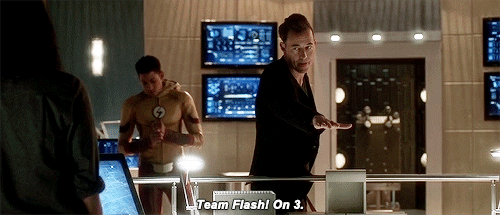
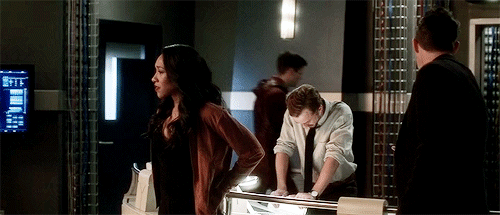
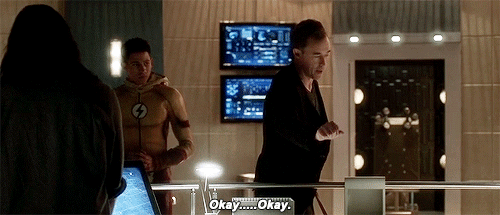
Meanwhile, in the enchanted forest of icy doom, Killer Frost is 2 seconds away from delivering the high top fade to Vibe when Savitar returns, and tells Killer Frost to take a chill pill (heh) cuz they need Cisco to help them build some nerdy shit. At the same time, Savitar realizes that Iris is alive, cuz memories. We find out Savitar needs Francisco’s intellect to make adjustments to the Speed Force Bazooka so that Savitar can be spliced into the Speed Force and litter his conscience across every moment in time, literally making him a God.
S.T.A.R. Labs: Barry tells the team that it may take a few hours for the ‘HR instead of Iris death paradox in time’ to catch up with Savitar, forcing them to be on top off their game because a mufucka like Savitar could damn near cause the biggest catastrophe in human history with that much unchecked free time. Julian reveals that he ain’t been twirling his thumbs waiting for the rest of the team to save the day. He been hollerin at hard at work with Caitlin’s mom and has crafted the formula to cure her of Killer Frost. Wally flashes in to tell the team that Savitar took Cisco and his holding him captive. How he knows this is anyone’s guess.

While sitting in the Reverse Flash suit room, Barry has his first caramel love moment since he thought Iris was dead as hell. He reminisces about beating Thawne and Zoom (after taking countless, spine readjusting Ls) then realizes he’s gotta think outside the box to save his best friends this time. He then makes one of the dumbest moves he has ever made (which is saying something) and runs to some undisclosed open space and waits for Savitar to remember they met there. Ol’ Savi pulls up and Barry tells him he’s done fighting him and wants to help him, then invites him back to S.T.A.R. Labs where he and Iris get to work on convincing him to join their loving team and tell them where Killer Frost and Vibe are being held.
S.T.A.R. Labs: YO. When I tell you the 1000 thread count newborn blankie violin music drops, the air deadass fills with the softest melodies ever heard since the lullaby days. I’m talmbout Sarah Mclachlan playing in the background while Iris puts on a marshmallow suit, stuffed with tempurpedic foam and goose down feathers soft ass shit. She walks up to Darth Flash and places her hand on that horrifically scarred face of his and tells him they got him. He’s “home”. Maaaaannnnnn if she get the fuck up outta here with that home shit! Barry recalls his fondest memory with ‘their’ mom and dad. All this time spend trying to coddle this natural born and professional murderer who tried to kill Iris and planned to torment each and every member of the team.

All this time spent skipping down memory lane as every remaining member of Team Flash on high alert cuz they ain’t got a single fuck to give about what Barry and Iris believe they can do to get Savitar to leave the dark side. And guess what?! They were all 100% right. As soon as shit gets too real for Savitar, cuz…ya know, he’s still head over heels in love with Iris, he dips outta there, but not before finessing that piece of the Philosopher’s Stone into a massive bomb in the basement. An explosion goes down, Barry and Kid Flash zip the team out of S.T.A.R. Labs and Barry is feelin like a dummy.

Savitar’s Lair: Darth Flash runs in to a finished Speed Force Bazooka. Savitar’s threat to murder Killer Frost before she can take the normalizing serum seems to have worked. Savitars takes the gat and dips, but not before telling Killer Frost to waste Vibe at her leisure. She says, “Oh woooorrddddd?! Bet. Hold these ice daggers!” and just as Cisco is about to catch the frozen acupuncture fade, Gypsy appears and blocks Killer Frost’s attempt at breach baes life. She could feel his call for help all throughout the multiverse. Cisco was like, you could feel whaaaattt now?! She’s all, yeah we’re connected fool and vibes them out of harms way. And where did they wind up? The Caramel Love Nest of course! The whole squad up in the crib lookin at each other like, this is finally it fam.
THE Lituation. Let’s put an end to this wannabe God.
Waterfront: For some reason Savitar is all about this waterfront location, cuz this the second time him and his acolytes have been spotted here doing some worship type fuck shit. Killer Frost is waiting on the sideline as Savitar opens a time portal. Black Flash appears, ready to drag Savitar too his Speed Force doom, then we find out exactly why he kept Killer Frost around. Apparently, the only thing they are susceptible to is cold, so he needed her to ice that sucker before he could be dragged off to hell. Guess Cisco was right..Savitar was just using her. He ain’t got no damn interest in making her a God, along with him, so she lucky Super Team Flash showed up before Savitar could sprinkle his Speed seed all across time.

Killer Frost uses the burner on Savitar as the big homie Jay Garrick shows up and rocks Darth Flash before any splicing can go down, then we get a good look at the Super Friends that have come together to put an end to Savitar’s reign. Flash, Kid Flash, Earth-2 Flash, Gypsy and Vibe.. who tells Savitar that he played himself cuz Cisco never intended on helping him achieve this absurd goal of being present in every second of every day, all the way back to the Big Bang. Dope little battle goes down to end this once and for all. All three Flash Speedsters get on their A game and gang gang gang up on Darth Flash. What’s crazy is that he still holds his own!! He yokes up Vibe, ready to kill em dead and that’s all Caitlin needed to snap out of her evil ways. Yooo the subtle Cisco love and motivation in this episode was crazy. From Gypsy to HR, Caitlin to Flash himself, it’s clear the team has one true constant that holds them down every step of the way, and his name is Cisco Ramon!
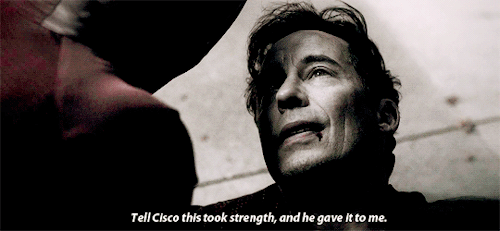



Killer Frost blasts Savitar and Team Flash unites for the finale showdown. The squad puts in that Tae Bo double time work as The Flash breaks out some new jutsu he learned out in Speed Force Mount Myōboku or some shit. Homeboy runs straight at Savitar like the guy in Get Out, and Barry Allen da Speed Force GAWD phases through Savitar’s suit and ejects him like a drunk fighter pilot vomiting all over the cockpit! Barry, inside the Megatron meets Ultron suit, beats Savitar senseless. Barry destroys the suit and walks away right before he breaks his rule and kills Savitar. As he walks away, Ol Savi creeps up to sneak attack kill Flash..after Flash just spared his life!! Good thing the West family is filled with straight shooters cuz Iris hits that boy with a single, well placed, burning slug. Da fictional bae winds up saving the day. After that garbage character development all season, she winds up the heroine. I mean, I fux wit it. Just gimme more. Like every episode maybe? Lets start there.




Savitar dissolves into thin air and the kids are alright. They all attend HR’s funeral and Cisco tries to convince Caitlin to return to the team full time, but she passes on that and the Killer Frost deading serum. Time for her to blossom into the Ice Queen she was always meant to be.
Well, you know they couldn’t let that peace rock for too long. Aaaaaaaannnddddd now we gave the Speed Force Prison destabilization causing unheard amounts of devastation! The earth begins throwing up lighting bolts across every inch of the city and the only way to stop it is to imprison another Speedster inside it. Barry decides it’s his time to repent for all the idiotic decisions he’s made over the last 3 seasons. FINALLY!!! He says goodbye to everyone and tells Kid Flash you got da juice now, as Iris sheds rivers of tears and barks mountains of protest. He gets the last ounce of that caramel loving and tells Iris that she will always be Mrs. Allen-West, and is on his way.



Flash Facts
Interesting call back to The Speed Force taking the form of Barry’s mother.
HR’s last words? So real.
Although, you could tell Savitar still loved Iris, I’m glad that wasn’t one of the driving points for his evil.
Guess this dude DeVoe, aka Thinker is the guaranteed big bad for Season 4, after having his name dropped twice this season, by people from the future.
It’s been an interesting season. It hasn’t been nearly as clean or exciting as seasons 1 and 2, but we still got amazing episodes all throughout season 3. If you missed anything, you know we got them recaps locked and loaded for the streetz. Feel free to go off in the comments section or holla at the BNP page on Facebook or Twitter. I know you savages got plenty to say. Until Season 4..

Are you following Black Nerd Problems on Twitter, Facebook, Tumblr or Google+?





 https://www.instagram.com/p/BUQc-cijodx/?taken-by=badgalriri
https://www.instagram.com/p/BUQc-cijodx/?taken-by=badgalriri




 Images via Splash, WENN and Getty
Images via Splash, WENN and Getty 